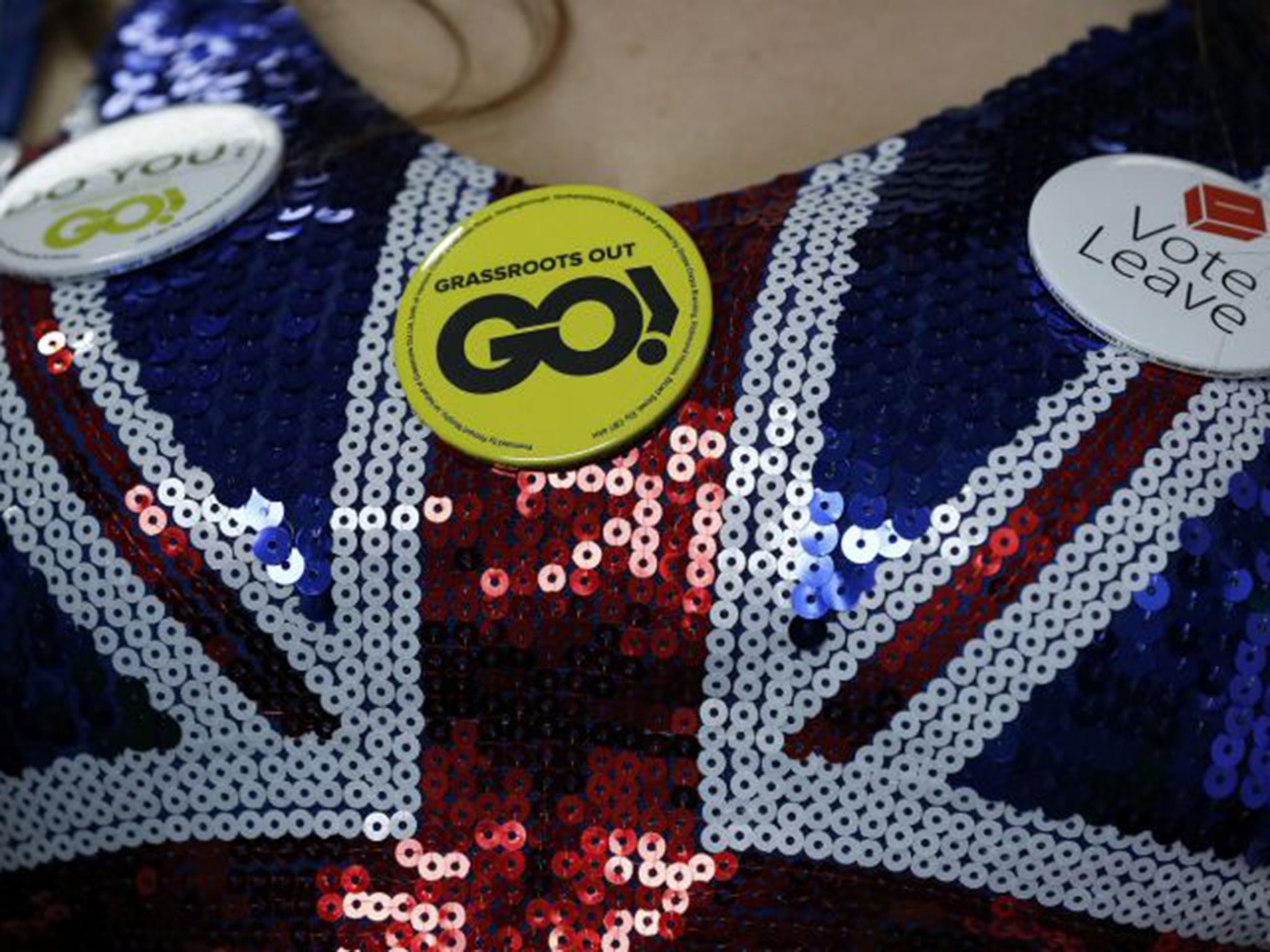The EU Out crowd is flamboyant, but the In team has clarity
Cameron is a powerful advocate because he knows the case and believes in it. The argument is what matters


There is a good rule in politics: follow the argument and not the soap opera, the seemingly significant character dramas that erupt most days of the week. The dramas are compelling theatre for those of us who watch closely, but most voters pay little attention to any of them. Ultimately, what gets through to voters is a coherent argument – one that seems credible, chimes with the few objective facts and appears to make sense. That is what wins elections and referendums. Successful electoral politics is like good music: if the various parts come together, people respond.
I read that the Out campaign in the EU referendum has had a good few days, generating a sense of momentum. For sure, big hitters are declaring in its favour on a near daily basis. Out has Boris and Michael Gove, nearly half of Conservative backbenchers, the former Tory leader Michael Howard, and the former SDP leader David Owen.
In some respects Owen is the most significant. He left the Labour party in 1981 partly because it was committed to leaving the EU. Now well into his 70s, he remains one of the most interesting and thoughtful figures in UK politics. He is more nuanced on the current Labour leadership than most of the hysterical commentary and a challenge to those of his SDP followers from the 1980s who joined the Conservatives and now argue that Cameron/Osborne occupy the centre ground.
With forensic force, Owen dissects the fashionable view that the current Conservative leadership pursues centrist policies. But like the other big figures who have declared for Out, he cannot answer clearly what follows the UK’s withdrawal. All of them list the flaws of the EU and yet they cannot agree on the consequences of a vote to leave. Boris began by suggesting that an Out vote could strengthen the UK in a second renegotiation and trigger another referendum. He subsequently repudiated this argument – but Howard was still making it in weekend interviews.
Gove’s focus so far has been on sovereignty, rather than on the chances of a second referendum or the economic impact of withdrawal. Owen argues that the EU needs a high-voltage event to trigger fundamental reform. He is most concerned about the euro and the inevitability that several countries currently in the single currency will leave. All of them are making very different arguments, and ones that are not easy to compress into a short case. There is no disciplined musicality in the Out campaign.
In contrast, the In campaign is clear about what will happen if the UK votes to leave the EU. David Cameron has stated, without qualification, that in such circumstances there will be no second referendum. He knows better than anyone the fantasy of such a proposition after negotiating sleeplessly to secure his limited deal with the rest of the EU. Having diverted the other EU members for months the idea that he could return and demand a whole lot more is laughable.
There is a mechanism in place that transcends all fantasies: an out vote on 23 June would activate article 50 of the Lisbon Treaty, the clauses that set out the protocol for a member state leaving the union. On this there can be no dispute. The words are there, that “the withdrawing member state shall not participate in the discussions of the European council or in decisions concerning it”. The UK would have only limited influence in the manner of its own departure.
Part of this debate is an imprecise existential argument about the state of the UK and its place in the world, but where there are strict provisions there should be no space for argument – and there are strict provisions in place when a country chooses to leave the EU. They are also in place in relation to the single market.
After Cameron returned from those sleepless nights at the recent EU summit he seemed oddly, counter-intuitively, energised. As he put the case for continued membership of the union there was much talk that he was “on top of his game”. There is a reason for this: Cameron is a powerful advocate because he knows the case and believes in it. The argument is what matters.
Cameron has also been highly effective in challenging another EU fantasy, that voting out would allow the UK to access the single market without being constrained by its rules. The rules are very clear: those outside the EU must pay for access, accept free movement of labour and will have no influence over the single market. Again there can be an existential debate about the UK being so mighty that it can flourish detached from bigger institutions – but where there are rules, there is no space for argument.
For those of us gripped by the human drama of politics there will be much Shakespearean tragedy and farce in the coming months. There always is in politics. Themes in relation to loyalty, betrayal and conviction light up the political stage.
None of it will matter very much in the referendum. Look at the last election. Cameron and Osborne had a message about their economic plan and not giving the key back to those who crashed the car. The argument was clear and repeated for months. Similarly the New Labour message in 1997 could be summarised clearly and credibly as “You can trust us now. We’ve changed”.
The Yes campaign might be more ordered and staid compared with the characters in Out, and the still-mighty newspapers that mediate on its behalf, but nothing beats clarity and coherence. Whatever the intoxicating distractions, the side with the clearest and most credible message will win.



Join our commenting forum
Join thought-provoking conversations, follow other Independent readers and see their replies